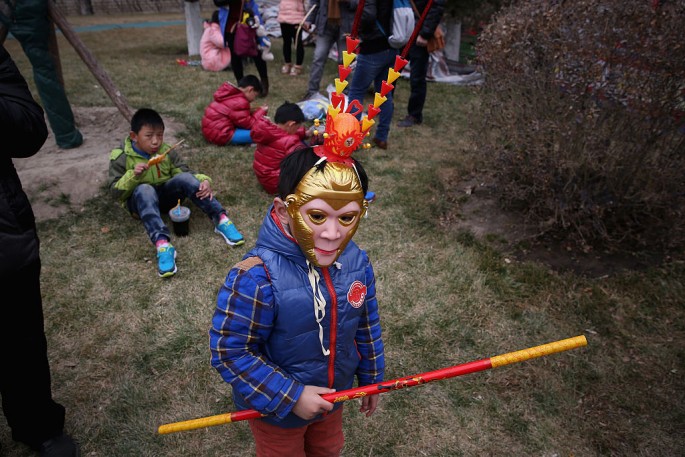Chinese worshipers of the Monkey King are eagerly awaiting the upcoming Lunar New Year on Feb. 8, which marks the start of the Year of the Monkey, as reported by the Xinhua News Agency.
Those who consider themselves followers of Qitian Dasheng (literally Great Sage Equal to Heaven), the title given to the Monkey King, hope the Lunar New Year will improve temple attendance, expanding the influence of its culture within and outside Fujian Province in Southeast China.
"We are planning the largest-ever celebrations in the Year of the Monkey. We've hired musicians for the parade and other events," said You Xiang, part of the management committee of the Ruyi Hexin Temple in Fuzhou, Fujian's capital.
The Monkey King, a powerful demon slayer in the classic Chinese novel "Journey to the West," is also known as a guardian of families in Fujian and Taiwan, where he is worshiped, a fact many people in other parts of China are not aware of.
A record number of the Monkey King's believers are projected to join this year's "parade of God," which will happen shortly after the Lunar New Year holiday, said You.
During the parade, temple workers will carry a statue of the Monkey King sitting on a wooden throne around several streets, lighting firecrackers and banging gongs in the process. Locals who believe in the Monkey King will welcome him with tables full of vegetarian food as tribute before taking part in the parade.
The temple is also being renovated for the Lunar New Year, according to You.
The excitement for the upcoming festivities is being felt across several of the more than 700 Monkey King temples in Fuzhou.
"Many believers have visited the temple wishing to bring the King (statue) back home for the Year of the Monkey," said Wan Congyuan, head of the management committee of the ancestral temple on Pingshan Mountain.
The religion is growing as the Monkey King is gaining ground as a cultural icon all over the country.
The character has inspired numerous films, cartoons and TV dramas.
Folklorists believe that the Monkey King could stem from a pre-historic worship of apes that dates back before the emergence of the novel.
"The novel made the belief more popular, as it transformed the local's image of a fearsome god into a demon slayer and protector of the people," said Li Linzhou with the religious affairs bureau of Fuzhou.



























